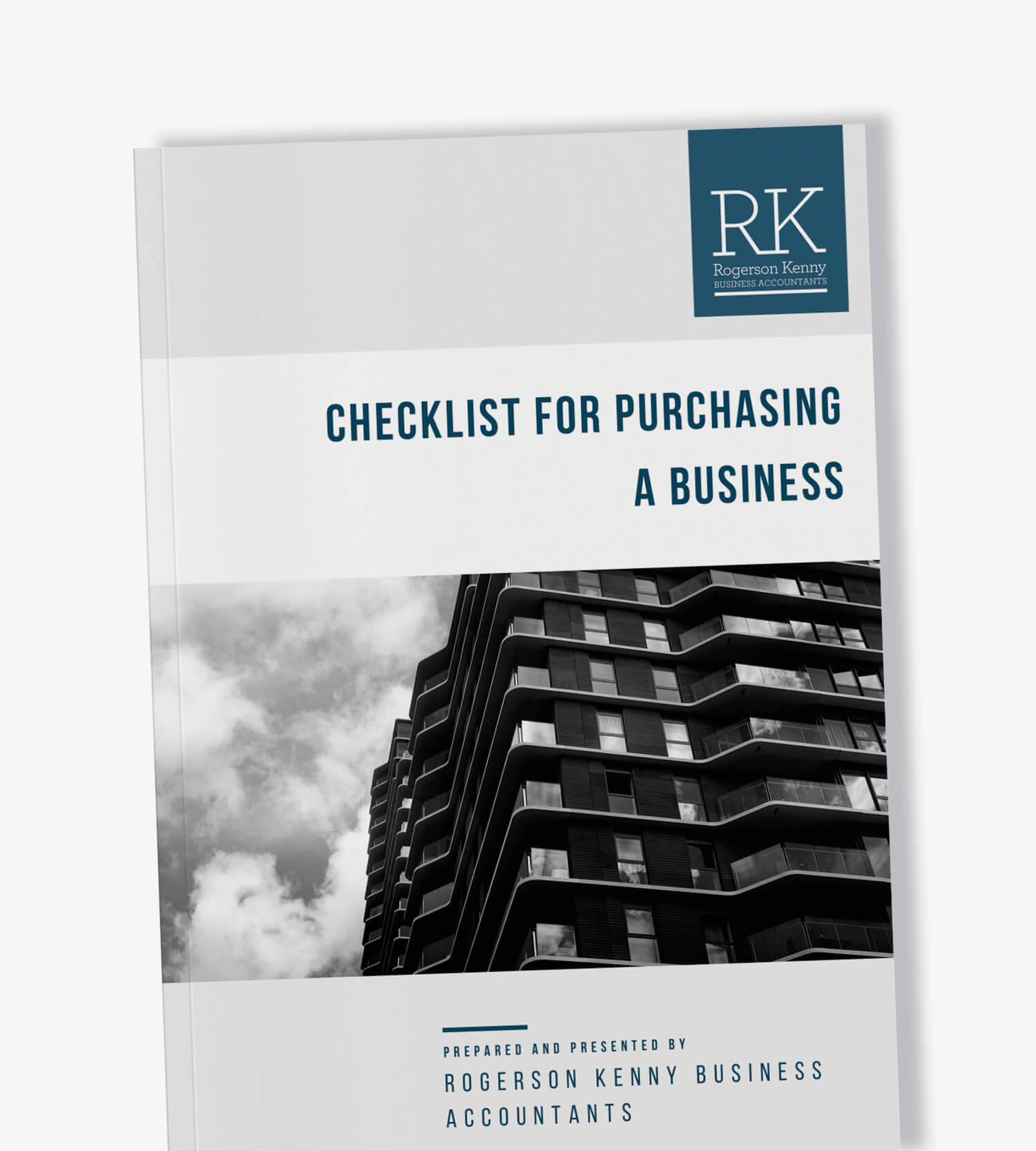Let’s explore some pros and cons of purchasing an existing business.
If you are purchasing a business that is currently trading, during the sales process it should be “business as usual” to suppliers, customers, and staff.

It is important to understand what it is you are actually buying. Will you be buying just the business and assets with the business? Or the whole existing entity? Those questions are outside the scope of this article, but it is important you are aware of them and that you seek personal advice so you can make informed decisions.
So, what are some of the advantages of buying an existing business?
There are many advantages when buying an existing business. If you understand what you are buying, what generates income, the internal and external strengths and weaknesses, and have done your homework on the business, its customers, suppliers, staff, systems and processes – then it can be an excellent way to “get into business” as opposed to starting something from scratch.
Starting a business from scratch, will mean you have no history, no customers, no suppliers, no money – a big reason why many startup businesses don’t make it.
You’re buying a future maintainable income stream
You are buying an asset that generates income, that has a history of doing so, that is going to deliver a return on your investment. Which when you are considering the purchase, you can test and prove and calculate this return on your investment. Starting a business from scratch, you really have no idea.
Established supplier relationships
These allow for the business to continue with relationships already established and well-functioning.
Beware – if you are buying the business and not the entity, the relationship with a supplier may stop and you may need to re-apply for credit terms, etc, as typically the supplier has the agreement with the business entity and that may not transfer on sale.
Existing customer base
The phone will ring Monday! A big difference to starting a business, an existing business will have customers and maintain the status quo for sales (all things being equal).
This needs to be one of your deepest dives when looking to buy a business…. What is generating the income? From who? And will it continue?
Established business infrastructure
You are acquiring the physical assets such as plant and equipment, systems, processes and IP that can generate income. All assets have been tried and tested, developed, improved to their current point that is allowing this generation of income.
Existing Staff and Knowledge
Taking over an existing local business also means inheriting staff who are already familiar with operations. The selling owner can also provide invaluable knowledge during the handover process to help you transition smoothly.
In isolation these may all seem like solid reasons to purchase an existing business, however, like most things, there are two sides to consider.
Let’s now evaluate some of the disadvantages of buying an existing business.
Overvaluation Risk
There’s a risk that the selling business owner overvalues the asking price for reasons like emotional attachment. As the buyer, overpaying can severely impact your return on investment.
Outdated Technology or Equipment
You also run the risk of inheriting outdated technology, machinery or equipment that requires costly upgrades post-purchase. These hidden re-investment costs can eat into your working capital.
Existing Liabilities and Debt
Make sure to carefully comb through the finances to check if there are undiscovered or hidden local liabilities like unpaid taxes, lawsuits etc. that you could become liable for as the new owner.
Local Staffing Challenges
Inheriting existing staff can also create challenges if they don’t share your vision or resent the change in local ownership. Key staff leaving can jeopardize operations and profitability.
Over-Reliance on Outgoing Australian Owner
Sometimes the outgoing owner was critical to the business’s success via key customer/supplier relationships or some specialized skill or knowledge. Losing them can negatively impact the business if you become over-reliant on them during the transition process.
Buying an existing business can be a strategic springboard for aspiring entrepreneurs seeking to bypass the initial hurdles of launching a venture from scratch. However, meticulous due diligence, professional guidance, and a realistic assessment of both the advantages and potential drawbacks are paramount for ensuring a successful acquisition.
Remember– Assembling a team of experts like an accountant and a solicitor specializing in business acquisitions can provide invaluable support throughout the process. Additionally, adopting a cautious approach, refraining from major changes during the initial year of ownership, and prioritizing observation can offer crucial insights into the business’s dynamics before implementing significant alterations.
At Rogerson Kenny, we believe buying an existing business makes a lot of sense for aspiring local entrepreneurs who want to avoid the risks and effort associated with starting a new business from scratch. Just be sure to conduct thorough due diligence with the help of professionals to ensure you don’t inherit problems that outweigh the benefits. Our expert team can help guide you through the process of buying an existing business successfully.

Buying a Business: Your essential guide.
We've created this valuable 10 step checklist to guide you through the initial stages of assessing a potential business opportunity
Designed to be thought-provoking, it helps you identify issues and opportunities in a business while covering essential operational and performance considerations, all backed by our business advisor insights.
With our business advice, you’ll have the support and knowledge you need to make informed decisions, maximise success and drive your enterprise forward.




